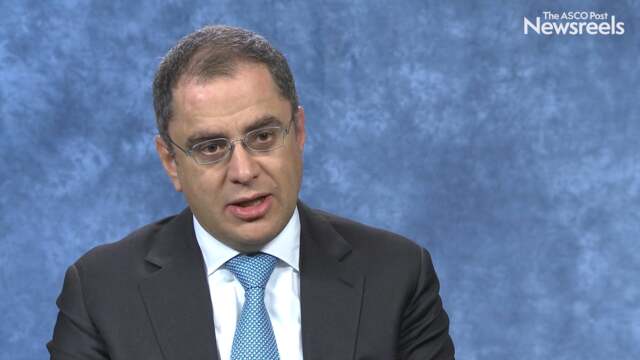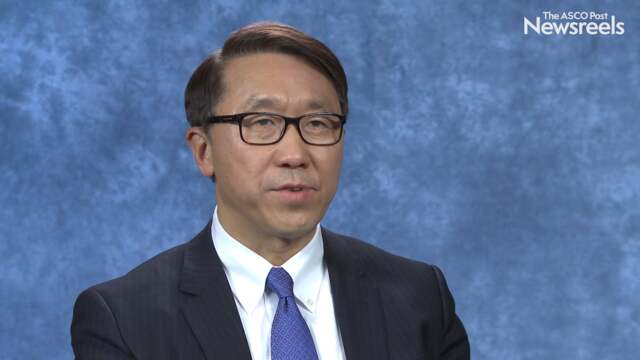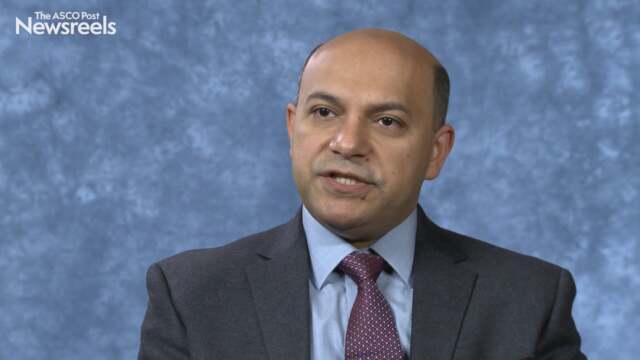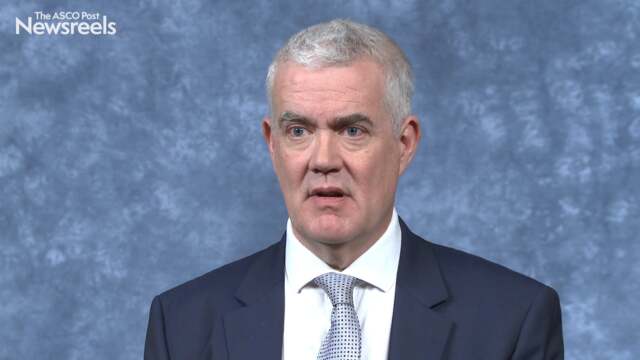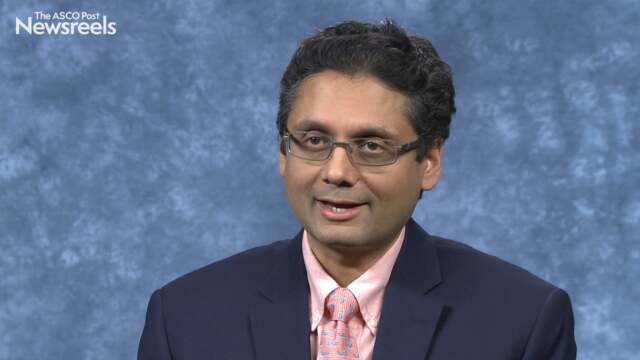Pieter van der Sluis, MD, PhD, on Esophageal Cancer: Results From a Surgical Treatment Trial
2018 Gastrointestinal Cancers Symposium
Pieter van der Sluis, MD, PhD, of the University Medical Center Utrecht, discusses study findings that compared robot-assisted minimally invasive thoracolaparoscopic esophagectomy vs open transthoracic esophagectomy for resectable esophageal cancer (Abstract 6).
Ghassan K. Abou-Alfa, MD, of Memorial Sloan Kettering Cancer Center, discusses phase III study findings on cabozantinib vs placebo in patients with advanced hepatocellular carcinoma who have received prior treatment with sorafenib (Abstract 207).
Andrew X. Zhu, MD, PhD, of Massachusetts General Hospital, discusses study findings on pembrolizumab in patients with advanced hepatocellular carcinoma previously treated with sorafenib (Abstract 209).
Basem Azab, MD, of the Sylvester Comprehensive Cancer Center, University of Miami, discusses the impact on overall survival when more than 2 months elapse between finishing neoadjuvant therapy and undergoing esophagectomy (Abstract 2).
Mark Saunders, MD, PhD, of Christie Hospital, discusses study findings on tumor sidedness and the influence of chemotherapy duration on disease-free survival (Abstract 558).
Manish A. Shah, MD, of Weill Cornell Medicine, discusses phase III study findings on cisplatin plus capecitabine or fluorouracil with or without ramucirumab as first-line therapy in patients with metastatic gastric or gastroesophageal junction adenocarcinoma (Abstract 5).
